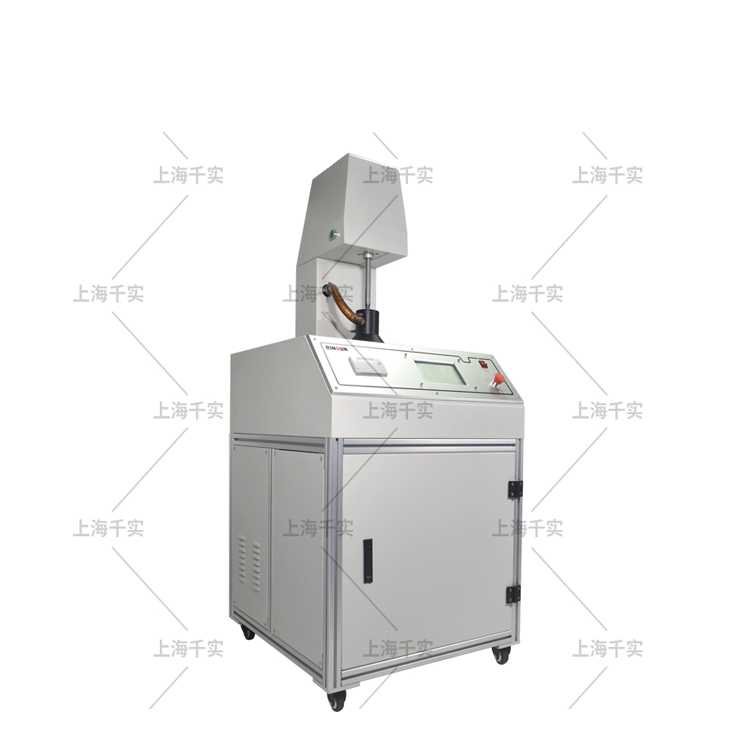Air Filter Testing Equipment AFT-9000: Comprehensive Performance Analysis for Air Filtration Systems
Overview
The AFT-9000 is an advanced automated system designed to evaluate the efficiency, durability, and compliance of air filters, including HEPA, ULPA, activated carbon, and hybrid filters. Critical for manufacturers of HVAC systems, cleanroom equipment, industrial exhaust systems, and automotive cabin air filters, this instrument ensures adherence to global standards (ISO 29903, EN 1822, ASHRAE 52.2, EN 779) while delivering precise measurements of particle capture rates, pressure drop, and particulate/gaseous contaminant removal.
Core Features
Dual-Stage Filtration Testing:
- Simultaneous evaluation of particulate filtration (0.1–50 µm particles) and gaseous adsorption (VOCs, ozone, NOx) using multi-stage challenge systems.
- Configurable setups for HEPA/ULPA filters, activated carbon media, and composite filters.
Precision Particle Generation & Detection:
- Built-in dry/wet aerosol generators with adjustable particle sizes (0.1–10 µm) and concentrations (10³–10⁷ particles/cm³) using polystyrene latex (PSL), DEHS, or potassium chloride (KCl) aerosols.
- Laser photometer or piezoelectric sensors measure penetration rates (≤0.001% detection limit) and filtration efficiency (%).
Dynamic Pressure & Flow Analysis:
- Measures airflow resistance (pressure drop) across filters at customizable flow rates (10–1,000 m³/h) to quantify energy consumption and mechanical durability.
Automated Durability Testing:
- Cycles filters through extreme conditions (temperature: -40–150°C, humidity: 0–100% RH) to simulate years of service life in accelerated wear tests.
Compliance Automation:
- Preloaded protocols for ISO 29903 (HEPA/ULPA filters), EN 1822 (H13–H14 class filters), ASHRAE 52.2 (HVAC filters), and CARB (California Air Resources Board) VOC standards.
Technological Innovations
- AI-Powered Efficiency Prediction: Machine learning algorithms analyze wear patterns to forecast filter lifespan and maintenance intervals.
- IoT-Enabled Data Integration: Real-time cloud synchronization for remote monitoring and multi-site compliance reporting.
- Modular Chamber Design: Swapable fixtures for testing diverse filter sizes (e.g., 10–100 cm²) and types (bag filters, panel filters, HEPA cartridges).
Applications
- HVAC Systems: Certify residential, commercial, and industrial air filters for particulate removal efficiency (MERV 1–20 ratings).
- Cleanrooms: Validate ISO 5–Class 1 cleanroom filters against particle penetration (≤0.01% at 0.3 µm).
- Automotive: Test cabin air filters for PM2.5, allergens, and exhaust gas adsorption.
- Industrial Safety: Evaluate explosion-proof filters in pharmaceutical manufacturing or chemical processing plants.
- Environmental Research: Study carbon nanotube filters or bioengineered adsorbents for CO₂ capture.
Compliance & Certification
Fully compliant with:
- ISO 29903 (Particle Penetration Test)
- EN 1822 (High-Efficiency Particulate Air Filters)
- ASHRAE 52.2 (HVAC Filter Efficiency)
- ISO 16890 (Air Filters for Ventilation Systems)
- CARB 1113 (VOC Emission Standards)
Optional Accessories
- High-flow particle generators (up to 5,000 m³/h)
- Multi-gas challenge systems (formaldehyde, SO₂, NOx)
- Environmental test chambers (-60–200°C, 0–98% RH)
- Automated report generator with GMP/GLP compliance templates
Conclusion
The AFT-9000 redefines air filtration testing by combining clinical-grade precision with AI-driven analytics. Manufacturers gain actionable insights to optimize filter performance, reduce energy costs, and meet evolving global safety demands—from pandemic-grade HVAC systems to next-gen cleanroom technologies.
2025-04-08 10:01
